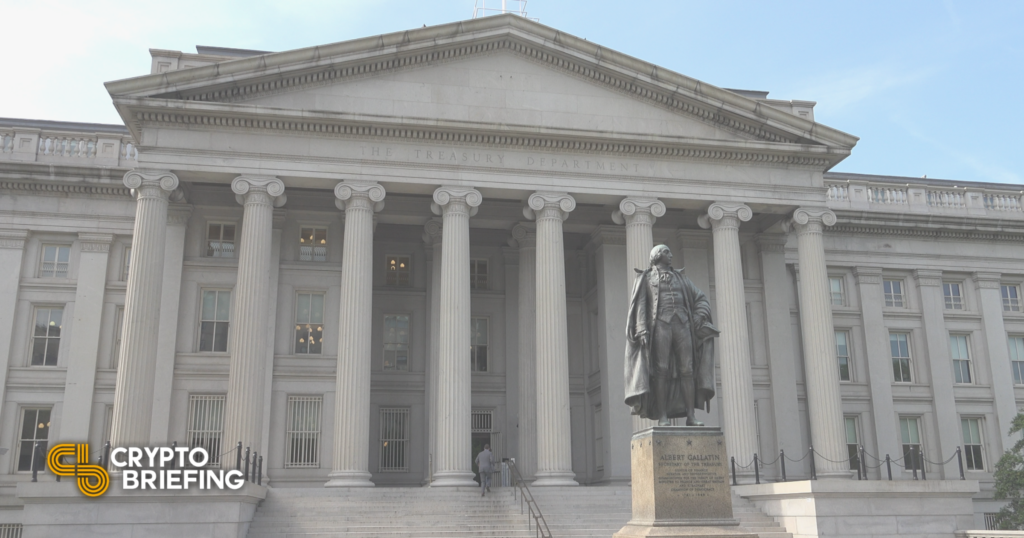
Shutterstock cover by Bob Korn
Daily Briefing: The Crypto Wars
The U.S. Treasury's move to sanction Tornado Cash has far-reaching implications for the crypto industry and sets a dangerous precedent.

Powered by Gloria
Chris Williams unpacks the U.S. Treasury’s Tornado Cash ban.
U.S. Treasury Sanctions Tornado Cash
The Treasury dropped a bombshell this week when it announced that OFAC had sanctioned Ethereum’s top mixing tool, Tornado Cash. It should go without saying that the implications of this move are massive—and a signal of where things could potentially be headed. I’ve been thinking about it a lot and here’s my take.
The Treasury put out a press release saying that Tornado had been used “to launder more than $7 billion worth of virtual currency since its creation in 2019,” effectively hinting that all previous interactions with the protocol constitute money laundering. While the $7 billion claim is a big stretch, it’s hardly surprising that the Treasury is taking this stance, given that practically every DeFi hacker ends up turning to Tornado to siphon their takings to clean addresses (over $1 billion of stolen funds has been laundered through the protocol over the last year). That makes it easy for the Treasury to spin up a narrative and bang out a press release full of half-truths to win over the public if it so desires. This is nothing new in crypto—authorities have been leaning on anti-crypto scaremongering since the FBI shut down Silk Road and seized 174,000 Bitcoin in 2013.
Since OFAC’s update, Circle and GitHub have complied with the ban, and again this isn’t all that surprising. I feel bad for those who have USDC stuck on Tornado, but of course, these centralized entities were going to adhere to the rules. OFAC is well aware of this. Circle’s move highlights the need for decentralized stablecoins that work—there’s currently no clear market leader that’s also sufficiently decentralized to overcome bans like this.
While the Treasury’s messaging talks about how it plans to go after any other “mixers that launder virtual currency for criminals,” I think it would be naive to assume that this stops with mixers. As others have pointed out, next it could be all addresses that have interacted with Uniswap, or all addresses that have not completed KYC procedures. While we’re used to hearing about sanctioned users and criminal-linked addresses, OFAC has now set a precedent in blacklisting a piece of code. In some senses, the move recalls the Crypto Wars of the 90s, when the U.S. government tried to stop Americans from accessing encryption tools.
OGs have warned about authoritarian crypto clampdowns for years now, and I fear they could be proven right. Everyone applauded the White House after President Biden signed the first digital assets Executive Order in March, but I’ve seen just as many signs that the various agencies working around him would rather crypto didn’t exist. Treasury Secretary Janet Yellen used the UST crash to warn against stablecoins, and Gensler and the SEC are on a vicious warpath against the industry. Soon, players like this will force projects like Tornado to up sticks and leave the country (it’s not like this ends in the U.S. either, by the way—just take a look at Justin Trudeau’s response to the Freedom Convoy protests).
Just as many projects will leave the U.S. and citizens will face blocks if the current trend continues, we’ll likely see a rise in anonymous teams building empowering tools like Tornado. Plus, with promising developments coming out of the zero-knowledge proofs space, I don’t think it will be that long until we’re regularly sending private transactions to one another on Ethereum with relative ease. Hopefully, no big government-backed moves will kill the space first.
Disclosure: At the time of writing, the author of this piece owned ETH and several other cryptocurrencies.
